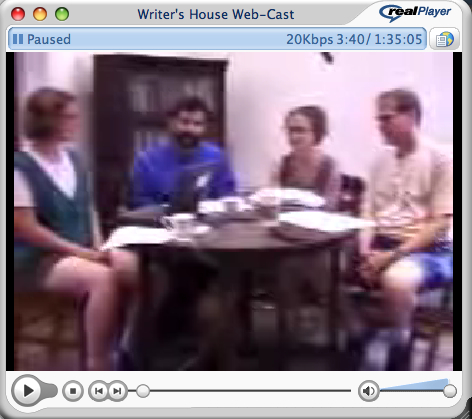Kathleen Fraser, 'The Cars'
LISTEN TO THE SHOW
PoemTalk is back after a bit of a holiday hiatus. Happy to be back with episode 13 on Kathleen Fraser’s disorienting prose-poem “The Cars.” The piece appears in two paragraphs on a single page in Fraser’s great book Discrete Categories Forced into Coupling. At some point during our discussion we ask ourselves if there are any such mergings going on in “The Cars” and we agree that there are, certainly. For one thing, two categories so literarily basic as subject and object: the poet’s subject position (the p.o.v. of the passenger in a car on an interstate highway) and the object of her gaze — a “dusky”-necked body, a dark or light-darkened man, dangerously crossing the highway at dawn, barely visible to the swiftly passing cars, looking for something he’s lost. The person in the car, the narrative seer, sees him, but then she’s past him. Did he make it? Did others see him? Does one want to see or to help, and are these categories discrete?
 The PoemTalkers this time were Kristen Gallagher, CAConrad (both on our program for the first time) and a wonderful regular, Jessica Lowenthal. Conrad identifies strongly with the woman in the car and expresses real doubts about the man crossing the road. Kristen is, in the end, concerned about the gendered poetic ethics of observing danger for the sake of the poem, which, to be sure, is a problem she feels Fraser raises in the writing (and thus it is a poem about this very “journalistic” problem). Jessica, aided by informal commentary from Kathleen Fraser herself (delivered by surprise, somewhat unfairly, by Al), comes to believe that at the center of the poem’s concerns is the disoriented body. Al agrees: it is a body in space, dislocated by interstate highwayness, with no place to stand, no light to define, no there to be there.
The PoemTalkers this time were Kristen Gallagher, CAConrad (both on our program for the first time) and a wonderful regular, Jessica Lowenthal. Conrad identifies strongly with the woman in the car and expresses real doubts about the man crossing the road. Kristen is, in the end, concerned about the gendered poetic ethics of observing danger for the sake of the poem, which, to be sure, is a problem she feels Fraser raises in the writing (and thus it is a poem about this very “journalistic” problem). Jessica, aided by informal commentary from Kathleen Fraser herself (delivered by surprise, somewhat unfairly, by Al), comes to believe that at the center of the poem’s concerns is the disoriented body. Al agrees: it is a body in space, dislocated by interstate highwayness, with no place to stand, no light to define, no there to be there.
PoemTalk #13’s engineer and director was James LaMarre and our editor as always is Steve McLaughlin. We at PoemTalk wish to express thanks to Kathleen Fraser (pictured above) for her generosity and assistance.
January 12, 2009
1999 Symposium on WCW's "To Elsie"
The Pure Products of America Go Crazy
On July 8, 1999, we at the Writers House held our first live interactive webcast. The discussion was all about William Carlos Williams's "To Elsie" (the pure products of America go crazy) from Spring and All. I hosted and was joined by Bob Perelman, Shawn Walker, and Kristen Gallagher. We fielded questions from people watching on the internet, among them Jena Osman and Terrence Diggory.
 It was streamed as video in RealVideo format and preserved as a video later in the same format. (Those who have RealPlayers installed still can watch the grainy video.) Later we extracted the audio from the video and now we've segmented that audio into topical segments. Here are the segments:
It was streamed as video in RealVideo format and preserved as a video later in the same format. (Those who have RealPlayers installed still can watch the grainy video.) Later we extracted the audio from the video and now we've segmented that audio into topical segments. Here are the segments:
[] Bob Perelman reading "To Elsie" (2:21)
[] Kristen Gallagher on facing alterity (4:30)
[] Al Filreis on the poem's uncertainty (1:54)
[] Bob Perelman and Al Filreis on "the pure products of America" and the issue of control (5:26)
[] Shawn Walker, Al Filreis, Kristen Gallagher and Bob Perelman on Williams' position towards Elsie (6:44)
[] Bob Perelman and Al Filreis on imagination (8:26)
audience comments and Bob Perelman on "peasant traditions" (3:17)
[] Bob Perelman on how the open architecture and "unsuccessful" quality of Williams' poems are relevant to poetics today
[] Al Filreis on Williams' attraction to the new "mixed" American culture
Here is the link to the page with links to audio and video.
PennSound's Williams page includes eight recordings of the poet reading this poem.